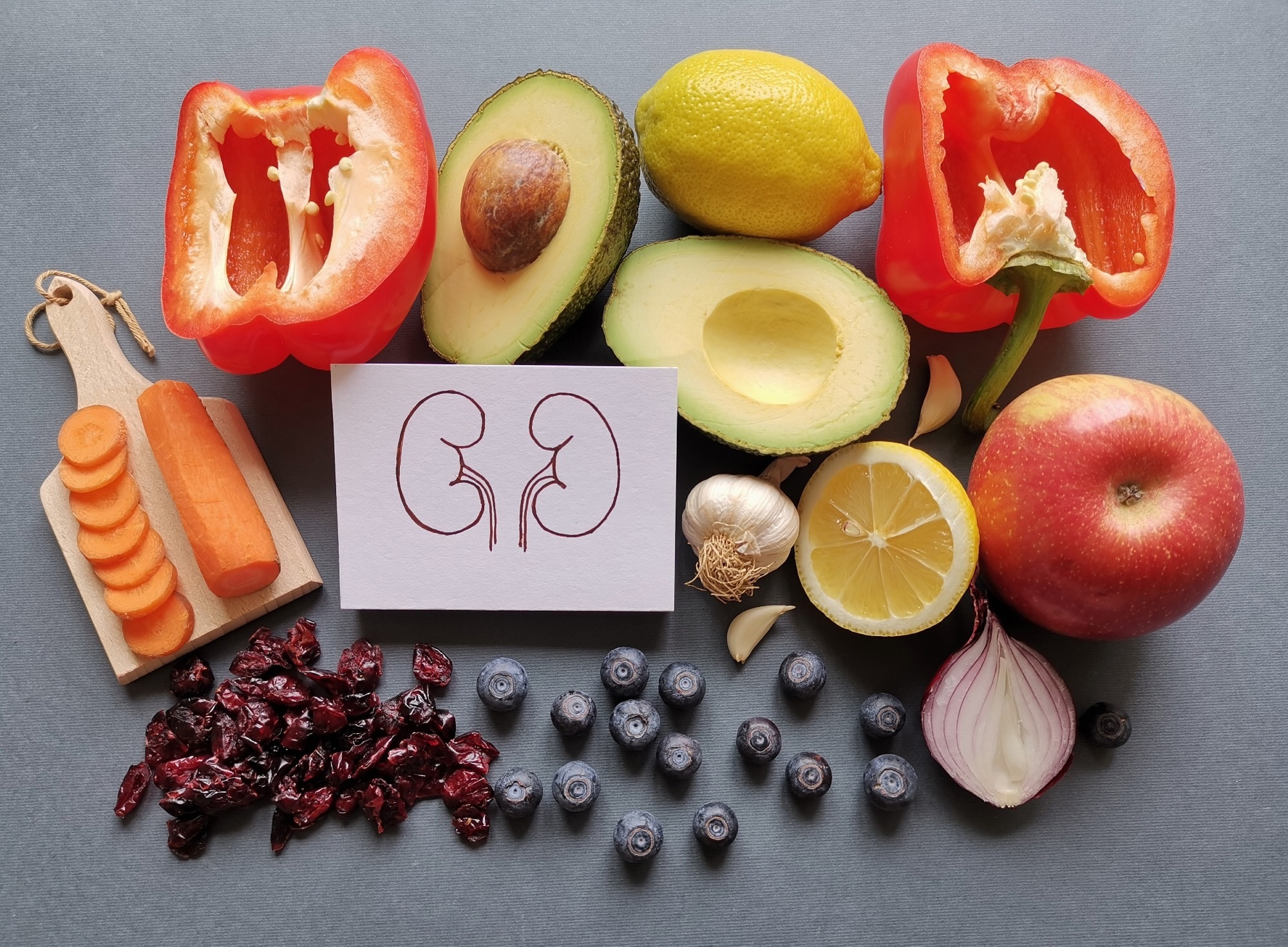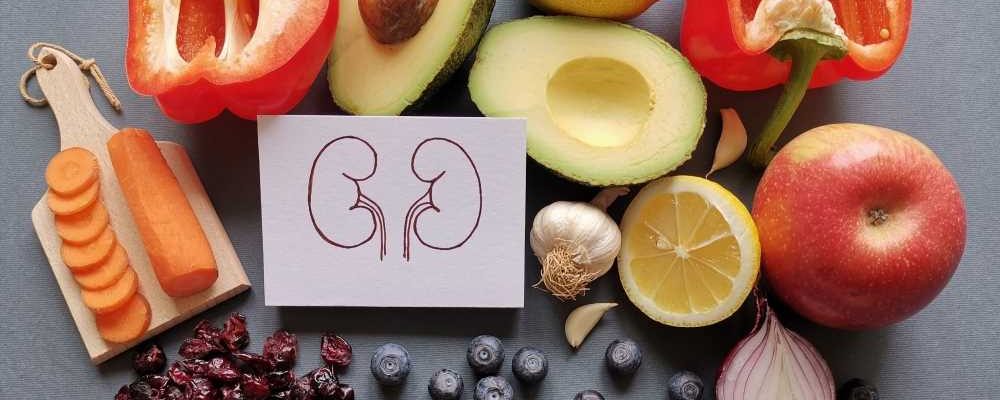Dietary intervention with cooking instructions boosts kidney health in African-Americans, study finds
A team of US-based scientists has conducted a study to investigate whether providing fruits and vegetables along with cooking instructions can improve kidney health among African-American adults with early-stage chronic kidney disease.
The study is published in the journal Kidney Medicine.
 Study: The Fruit and Veggies for Kidney Health Study: A Prospective Randomized Trial. Image Credit: Danijela Maksimovic / Shutterstock
Study: The Fruit and Veggies for Kidney Health Study: A Prospective Randomized Trial. Image Credit: Danijela Maksimovic / Shutterstock
Background
Chronic kidney disease is associated with many health complications, including albuminuria, cardiovascular disease, and high disability-adjusted life years. At an advanced stage, the condition is associated with high mortality rates.
In the United States, the prevalence of chronic kidney disease and related disability-adjusted life years is increasing gradually over time, with a concomitant rise in individual-level and national-level economic burden. In particular, disproportionately high rates of chronic kidney disease and cardiovascular disease have been observed among African Americans, which might be due to their low socioeconomic status.
A urine albumin to creatinine ratio of more than 10 mg/g (albuminuria) is considered a significant risk factor for chronic kidney disease. Existing evidence indicates that regular consumption of fruits and vegetables reduces the risk of kidney damage among individuals with albuminuria.
In the current study, scientists have investigated whether providing fruits and vegetables along with cooking instructions to African American patients with albuminuria can reduce their risk of developing severe chronic kidney disease and cardiovascular disease.
Study design
The study “ The Fruit and Veggies for Kidney Health Study: A Prospective Randomized Trial” was conducted on 142 adult African American patients with early-stage chronic kidney disease and a urine albumin to creatinine ratio of more than 10 mg/g.
The participants were randomly categorized into two groups. In one group, 72 participants received only 2 cups/day of fruits and vegetables for six months. In the other group, 70 participants received the same amount of fruits and vegetables along with cooking instructions for six months.
Urine samples collected from the participants were analyzed for two kidney injury markers, including albumin to creatinine ratio and angiotensinogen to creatinine ratio. Various anthropometric and biometric measurements were also obtained from the participants.
Important observations
The assessment of dietary intake at baseline, 6 weeks, and 6 months time points revealed no significant differences between the groups, except for fruit and vegetable intake, which increased in both groups after 6 weeks of intervention.
The assessment of kidney function revealed that participants who received fruits and vegetables along with cooking instructions had 31% lower albumin to creatinine ratio at 6 months compared to those who received only fruits and vegetables. However, no significant difference in angiotensinogen to creatinine ratio was observed between the groups.
In both groups, a significant association of lower albumin to creatinine ratio was observed with lower glycated hemoglobin (HbA1c) and lower diastolic blood pressure. For each unit increase in HbA1c and diastolic blood pressure, the albumin to creatinine ratio increased by 17% and 2%, respectively, in both groups.
Systolic and diastolic blood pressure, serum lipoproteins, and HbA1c were measured in this study as secondary outcomes. However, no significant changes in any of these parameters were observed between the groups.
A sub-group analysis was also conducted after combining all participants into a single group to investigate the effect of increased fruit and vegetable consumption on secondary outcomes.
The findings revealed a significant net increase in fruit and vegetable consumption at 6 weeks in the combined group. Participants with elevated baseline values of secondary parameters exhibited a significant reduction in systolic and diastolic blood pressure, HbA1c, and low-density lipoprotein (bad cholesterol) and a significant increase in high-density lipoprotein (good cholesterol) after consuming fruits and vegetables for 6 months.
Study significance
The study finds that early-stage chronic kidney disease patients can improve albuminuria more if provided with cooking instruction in addition to fruits and vegetables.
In other words, the study highlights the importance of adjuvant cooking instructions to achieve the optimal kidney and cardiovascular health benefits of fruits and vegetables. The study findings could be beneficial to reduce the risk of cardiovascular and kidney disease in high-risk populations, including community-dwelling African Americans.
- Kitzman H. 2023. The Fruit and Veggies for Kidney Health Study: A Prospective Randomized Trial. Kidney Medicine. https://www.kidneymedicinejournal.org/article/S2590-0595(23)00154-1/fulltext
Posted in: Men's Health News | Medical Research News | Medical Condition News | Women's Health News
Tags: Albumin, Albuminuria, Blood, Blood Pressure, Cardiovascular Disease, Cholesterol, Chronic, Chronic Kidney Disease, Creatinine, Disability, Fruit, Glycated hemoglobin, HbA1c, Hemoglobin, Kidney, Kidney Disease, Lipoprotein, Medicine, Mortality, Vegetables

Written by
Dr. Sanchari Sinha Dutta
Dr. Sanchari Sinha Dutta is a science communicator who believes in spreading the power of science in every corner of the world. She has a Bachelor of Science (B.Sc.) degree and a Master's of Science (M.Sc.) in biology and human physiology. Following her Master's degree, Sanchari went on to study a Ph.D. in human physiology. She has authored more than 10 original research articles, all of which have been published in world renowned international journals.
